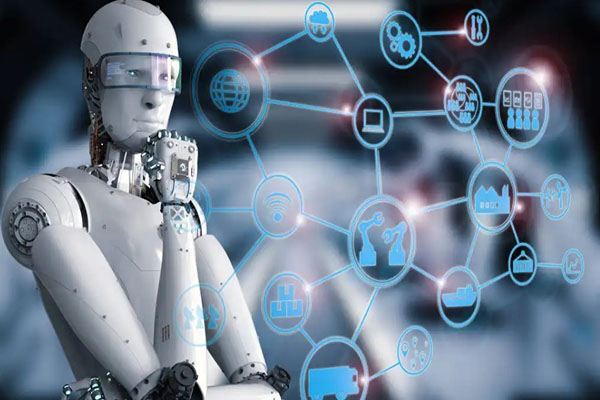A transformation in the vast realm of manufacturing is fast approaching. Smart factories are evolving from traditional assembly line formulating centers for innovation. The concept of manufacturing is being heightened not by mere updates, but rather by employing the brilliance of AI and cutting-edge technologies which produce seamless results.
The Rise of Smart Factories: A Vision Unfolding
Visualize a factory infrastructure where every movement, and process is operated by AI. That’s the glamour of smart factories. They have the capacity to reframe the vision where AI, IT, robotics, and data analytics form a web. Thereby the scope of work expands at a point where the machines form a conversation between adaptability and lack of effortless human intervention. The AI conductors lead the whole industrial balance.
AI’s Imprint on Manufacturing Efficiency
Deloitte’s 2023 outlook surveys peering into the production industry reflect a remolded aptitude of the AI. 62% of the respondents stand by the idea of AI fastening the production process in addition to reducing cost and bridging the gap developed by labor shortages. At the same time, AI, machine learning, and IT continue to reframe the roles within the hierarchy as there’s a continuous transition.
Unleashing the Transformative: Power of AI Technologies
Precision and optimization are the major aspects of revolutionizing the mechanization of AI in smart factories. The revolution integrates the manufacturing processes with the productivity of the work arena. They sculpt an environment where errors dwindle to insignificance, where product quality achieves unswerving consistency, and where production cycles dance to a faster, more harmonious rhythm. The AI impacts various characteristics such as predictive maintenance, real-time monitoring, and quality assurance.
The Soaring Trajectory of AI in Manufacturing: A Prophesied Ascension
Unprecedented growth is predicted by the market research narrating the revelations. Starting at USD 2.45 billion in 2022, the global AI in manufacturing market is poised to ascend to an astronomical USD 53.69 billion by 2030. These numbers reflect trust and credibility in the industry and justify the transformation that AI upholds.
Guiding the Charge in the Era of Smart Factories
A future is being framed by the leaders who bring technological expertise to the table. 3 essential elements to cultivate organizational ethos are adaptability innovation, and perpetual learning. The industries harnessing the power of data-driven insights not only optimize, refine, and revolutionize but also proactively adapt to the technology.
Envisioning the Uncharted Horizons
The present and the upcoming smart factories are an innovation in the canvas of production. The efforts taken to transform the decision-making process with predictive analytics is an art. This revolution will evaluate job roles and request a partnership between human intellect and technological expertise.
In Conclusion: Pioneering the Industrial Renaissance
A revolutionary phase in production is marked by the rise of smart factories and the advancement of AI. The stakeholders in the industry have the leverage to redefine, reshape, and elevate the industry as the leaders of the transformative landscape. Embracing this paradigm shift heralds a future where manufacturing transcends its limitations, birthing an era of unparalleled agility, responsiveness, and sustainability.















